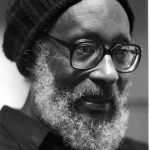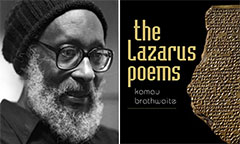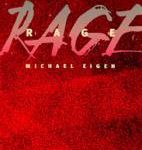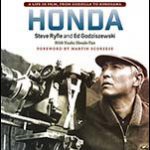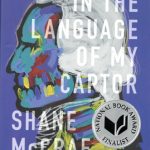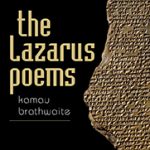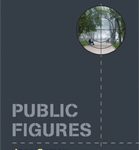 Evie Shockley’s new book semiautomatic is now available!
Evie Shockley’s new book semiautomatic is now available!
Poetry that acts as a fierce and loving resistance to violence.
“Evie Shockley’s semiautomatic goes beyond mere weaponry. This book is revelatory. A tool in the chest of cultural workers, a vocabulary that resists decoration; this is self-portraiture and truth-telling at its best. From her epic ‘the topsy suite’ to her one-acts (a new form), through her fearless lens and appropriation of authorities, there’s no level of denial or proof-vest that will protect you from Shockley’s poetry. You can run, Reader, but you will not be able to look the other way.” –Willie Perdomo
“Evie Shockley suggests that poetry is necessary to seeing, surviving with equilibrium and wholeness in this period’s vital and precarious junctures. The poems in semiautomatic are on fire. This will make an excellent source book of poetic form and historically grounded black aesthetics for the classroom.” –Erica Hunt
“There is no keener mind in American poetry than Shockley’s, with her quick turns and inflections, slipping between subjectivity and documentary, between verse and refrain. Her poems engage—politically, formally, historically, profoundly—with the redistribution of power through language. Read this book and get shook.” –D.A. Powell
Evie Shockley’s semiautomatic insists that art can feed the spirit and reawaken the imagination. Responding to the inescapable evidence of the discriminatory terms placed on black life, her poems connect the violence facing people across the racial, ethnic, gender, class, sexual, national, and linguistic boundaries that both encompass and divide. The poems of semiautomatic vary from fragment to narrative and from sequence to song. Shockley observe past and present; meditating on what wisdom we might glean from memory to guide us to a better future.
Shockley’s previous works include the new black (Wesleyan, 2011), winner of the Black Caucus of ALA’s Literary Award for Poetry, and a half-red sea (Carolina Wren Press, 2006), in addition to two chapbooks. She also has a book of criticism, Renegade Poetics: Black Aesthetics and Formal Innovation in African American Poetry (Iowa, 2011). Her prose writing has appeared in Callaloo, African American Review, and Indiana Review. Her poetry has appeared in MELUS, Harvard Review, Columbia Poetry Review, and in the anthology Black Nature: Four Centuries of African American Nature Poetry, among other publications. Shockley received her BA in English from Northwestern University, followed by a J.D. from University of Michigan Law School, before earning her MA and PhD from Duke University. She is assistant professor in the English department at Rutgers University.
Watch Evie Shockley read from new work, including work from semiautomatic
poem from the book:
weather or not
time was on its side, its upside down. it was a new error. generation why-not had voted its con-science and a climate of indifference was generating maelstromy weather. we acted as if the planet was a stone-cold player, but turns out the earth had a heart and it was melting, pacific islanders first into the hotter water. just a coincidence—the polar bears are white and their real estate was being liquidated too. meanwhile, in the temper-temper zone, the birds were back and i hadn’t slept—had it been a night or a season? the birdsong sounded cheap, my thoughts cheaper, penny, inky, dark. language struck me as wooden, battered. the words became weeds, meaning i couldn’t see any use for them. i had signed my name repeatedly without any sign of change. i was still bleeding from yesterday’s sound bites, and the coming elections were breeding candid hates by the hand-over-fistful. there’d been an arab spring, but it was winter all summer in america.
This project is supported in part by an award from the National Endowment for the Arts.

